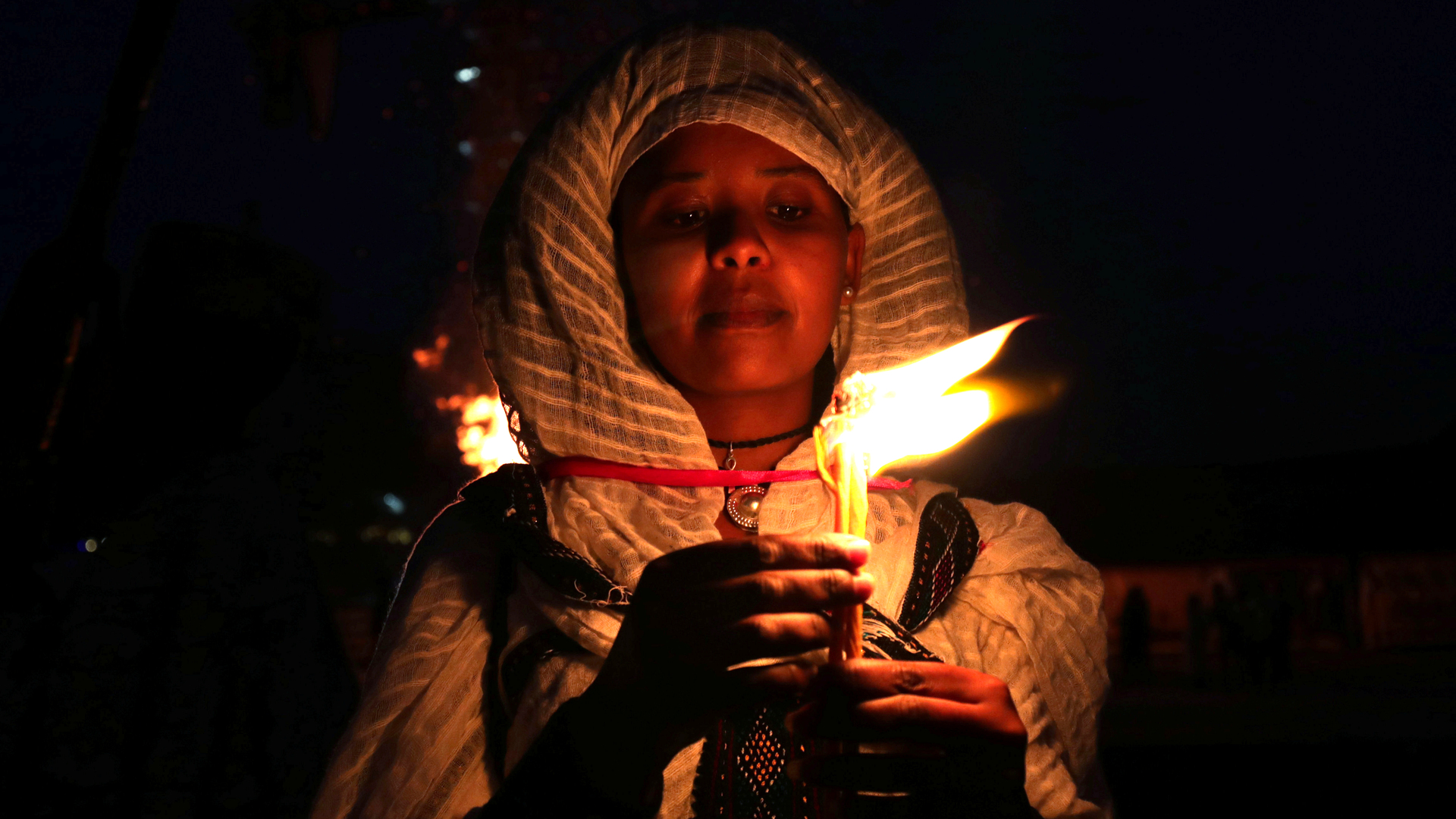Extermination Project
George Alexander, head of the Society for the Promotion of Christian Unity, turned to Russia and the Russian Orthodox Church for help in resolving the conflict in Ethiopia.
This organization, as explained to RT in the Department for External Church Relations of the ROC, belongs to the Malankara Church - the "sister" of the Ethiopian Orthodox Church - and "is a great friend" of the Russian Orthodox Church.
“The armed aggression has reached its peak ... The genocide of Christians is taking place.
And this is in a country where the dominant religion is Christianity, '' the statement read by RT says.
- In 2019 alone, fanatics destroyed more than 30 churches and organizations.
A project to exterminate Orthodox Christians is ongoing.
The world media, concerned about the problems of Christians and minorities, remain silent about the suffering of Ethiopian Christians ... There is a planned and ongoing ethnic and religious project to undermine the national unity of Ethiopia.
Dear Russians, Russian Church, Ethiopia asks for your valuable help and support! "
Reuters
© Pascal Rossignol
What is happening in Ethiopia is unprecedented, says Hieromonk Stephen Igumnov, secretary of the Department for External Church Relations for Inter-Christian Relations.
In the fall of 2019, a delegation from the Russian Orthodox Church under the leadership of Igumnov visited Ethiopia.
"In this case, there were organized attempts to translate the interethnic, socio-political conflict into a religious plane," a representative of the Russian Orthodox Church explained to RT.
"At the same time, as often happens recently, Christians have become the target of attacks."
According to Igumnov, "it is obvious that the actions of the bandits are skillfully directed and financed."
“Before the pogroms in Ethiopia, there was active agitation among the nationalist-minded representatives of the Oromo people, half of which traditionally belong to the Ethiopian Church, and the other half are Muslims.
True, recently, many followers of Western charismatic religious movements have appeared among the Oromo, ”notes Stefan Igumnov.
“It was suggested that the Ethiopian Church was allegedly alien to this people, although Oromo representatives for centuries were its faithful children.”
Reuters
© Tiksa Negeri
The goal of those who direct the radicals is to destabilize the situation in the country where the Ethiopian Church is one of the foundations of society, the clergyman said.
According to Igumnov, "in recent months, the central government (Ethiopia
- RT
) began to restore order," but none of the criminals was brought to justice.
“The truth about the persecution is usually hushed up,” emphasizes the representative of the Russian Orthodox Church.
- It was so in Syria and in other places, so today in Ethiopia.
We know about the situation firsthand ”.
Despite the pandemic, the Church maintains "constant working contact with the Ethiopian side."
The possibility of providing humanitarian support to those who suffered during the pogroms is being explored, the Russian Orthodox Church told RT.
This is a terrible chronicle of Ethiopia, in which militant nationalists far from faith have been deliberately and massively exterminating Christians since last year.
The exact number of victims of the persecution of Christians is unknown.
According to the estimates of the humanitarian organization Barnabas Foundation, the death toll in the last four months alone is at least 500 people.
The attacks are taking place in a country with a predominantly Christian population - with the connivance of local authorities and the silence of the world community.
Only the Ethiopian Orthodox Church, its "sister" Malankara Church and a few media outlets report on what is happening.
Interethnic conflicts
Attacks on believers, temples and clergy of the Ethiopian Orthodox Church have been taking place since August last year amid attempts to destabilize the political situation in Ethiopia.
The conflict is based on interethnic clashes between the peoples of Oromo, Amhara and Tigrai.
Recently, the confrontation between the regions (they are created on an ethnic basis) and the federal government of the country has also intensified.
The epicenter of violence was the province of Oromiya.
In the winter of 2020, a wave of violent attacks spread to other regions, as well as the Ethiopian capital Addis Ababa.
The radicals burned houses, shops, cars of Christians.
The church speaks of several thousand dead, tens of thousands of wounded.
According to the information that the Russian Orthodox Church receives from the Ethiopian colleagues, the attackers deliberately severely mutilate people - they cut off their limbs, first of all, the right hand, so that a Christian cannot cross himself, blind, crush the spine, and rape pregnant women before being killed.
© Photo courtesy of the Ethiopian Orthodox Church
A new wave of attacks on Christians began in July this year after the murder of the singer, opposition leader Khachalu Hundesa, who was called the "voice of the Oromo people."
BosNewsLife reported that the militants - young people belonging to the radical group Qeerroo ("Bachelors") - came in cars with pistols, machetes and other cold weapons to the homes of Christians.
The victims were killed, forcing children to watch the atrocities against their parents, the newspaper said.
Some of the rioters allegedly had lists with the names of potential victims and received help from local authorities in finding those who actively support the Ethiopian Orthodox Church.
Witnesses cited by the newspaper say local police often silently watched the killings.
In the Bail Agarfa region, “several brave Muslims intervened, risking their own lives, to protect Christians from death,” eyewitnesses told reporters.
The government cut off the internet across the country for several weeks to curb the surge in violence: extremists posted reports of their raids on social media. Observers are already comparing what is happening with the events leading up to the 1994 genocide in Rwanda.

